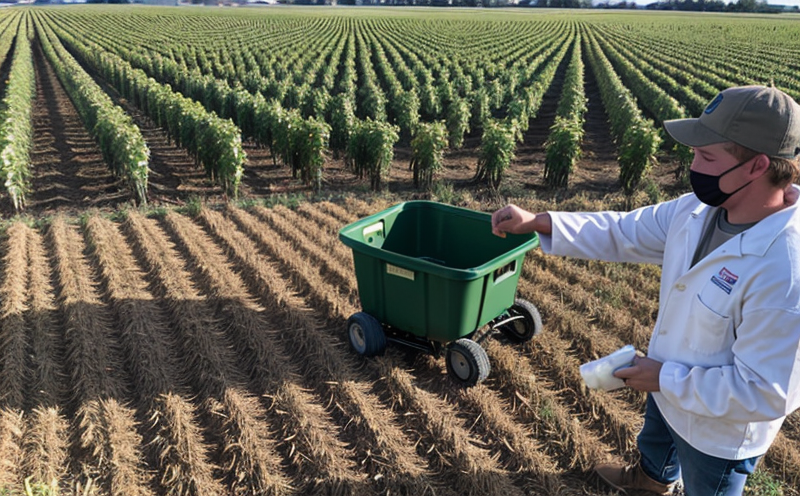Germination Potential Testing Post-Harvest
Germination potential testing post-harvest is a critical process that ensures agricultural products maintain their viability and quality after harvesting. This service involves assessing the ability of seeds or other propagules to germinate under controlled conditions, ensuring they remain viable for planting or further processing. Post-harvest germination tests are essential in agriculture and forestry as they help determine the optimal time for planting, seed storage requirements, and overall crop health.
The process is particularly important when dealing with seeds that have undergone various post-harvest treatments such as drying, conditioning, or packaging. By conducting these tests, quality managers can ensure that seeds retain their potential to germinate even after handling and storage processes. This service supports the agricultural sector by enhancing crop yields, reducing waste, and improving overall efficiency in seed production and distribution.
Germination potential testing post-harvest is governed by international standards such as ISO 3632-1:2004 for seeds of agricultural importance. These standards provide clear guidelines on how to conduct the test accurately and consistently, ensuring that results are reliable and reproducible. The testing process typically involves soaking the seeds in water at a controlled temperature and humidity level for a specific duration before counting the number of germinated seeds.
Understanding the factors affecting post-harvest germination is crucial for maintaining seed quality. Factors such as temperature, humidity, light exposure, and seed age can significantly impact germination rates. By identifying these variables through testing, agricultural professionals can optimize storage conditions to maximize germination potential. This not only improves crop performance but also ensures compliance with regulatory standards.
Post-harvest germination tests are essential for several reasons. They help in assessing the effectiveness of post-harvest treatments such as drying and conditioning, ensuring that these processes do not compromise seed viability. Additionally, they provide valuable insights into the quality of seeds during different stages of storage and handling, which is crucial for maintaining uniformity across large-scale agricultural operations.
The accuracy and reliability of germination potential testing are paramount in agriculture and forestry. Using internationally recognized standards ensures that tests are conducted uniformly across regions, fostering trust among stakeholders and facilitating trade. This service supports the sector by providing data-driven decisions that enhance crop performance and reduce losses due to poor quality seeds.
Benefits
- Ensures seed viability for planting or further processing
- Optimizes storage conditions to maximize germination potential
- Reduces waste by identifying non-viable seeds early in the process
- Aids in compliance with international standards and regulations
- Supports decision-making for agricultural operations
Industry Applications
| Application Area | Description of Use |
|---|---|
| Crop Production | Assesses seed quality to ensure optimal planting times and crop yields. |
| Seed Storage and Handling | Evaluates the impact of storage conditions on germination potential. |
| Post-Harvest Treatment Evaluation | Determines the effectiveness of drying, conditioning, or other treatments. |
Customer Impact and Satisfaction
The service directly impacts customer satisfaction by ensuring that seeds are of high quality when they reach the market. By conducting post-harvest germination tests, we help customers achieve better crop performance, reduced waste, and increased efficiency in their operations. This not only enhances the reputation of our clients but also contributes to sustainable agricultural practices.
Our approach ensures that seeds are tested under controlled conditions that simulate real-world scenarios, providing accurate results. This transparency builds trust with our customers, who can rely on our services to make informed decisions. By offering this service, we contribute to the broader goal of improving food security and sustainability in agriculture.





